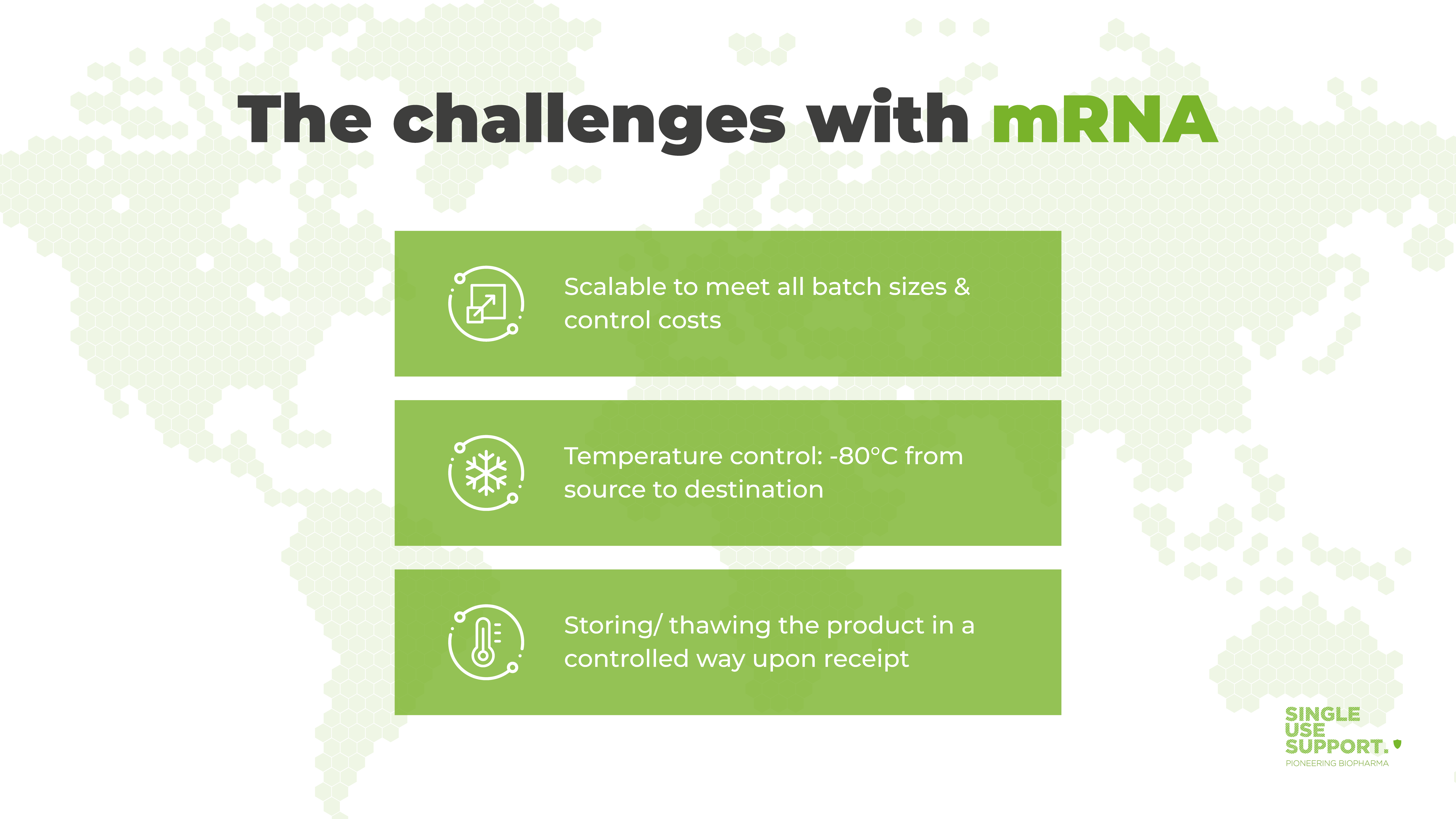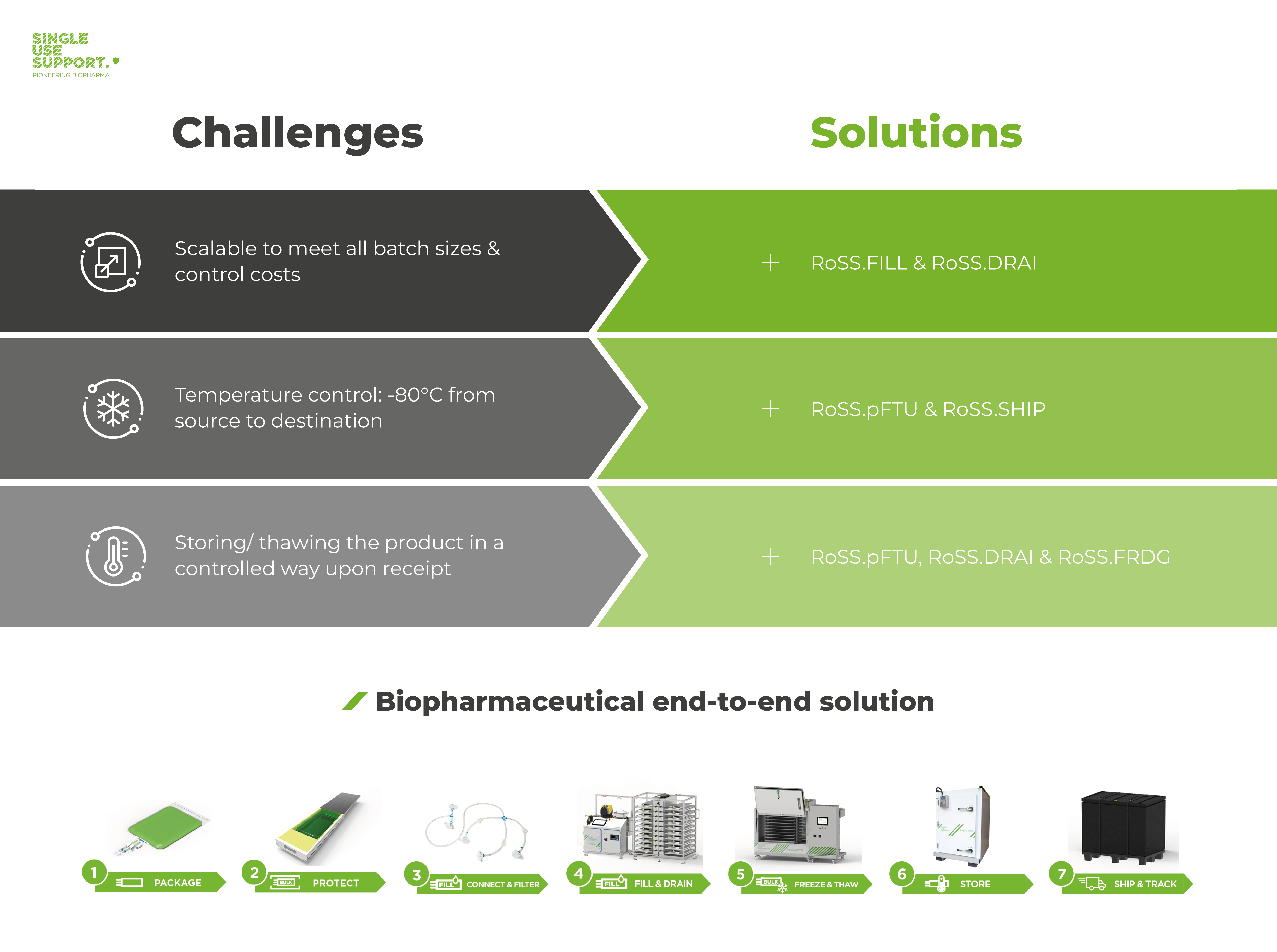Cold Chain: a Hot Topic for mRNA Vaccines
With the use of mRNA vaccines on the rise, so is the need for dedicated freezing and storing solutions
Daniel Tischler

Recently, mRNA vaccines have moved under the spotlight and become the subject of much more attention, not just among experts but also among the general public. The fight against COVID-19 is not the only field where mRNA has offered promise. Research has been ongoing for several years, for example, to create mRNA-based vaccines against certain cancers, including melanoma and gastrointestinal cancer. Additionally, there is research under way to develop mRNA-based therapeutics for other medical conditions, such as cystic fibrosis. These and other applications give hope to millions of people worldwide and emphasize the need for process optimization to meet the increasing demand for mRNA-based biopharmaceuticals.
A delicate product
As the use of mRNA vaccines has grown, the industry has faced challenges in scalability, transitioning from lab to bulk scale production. Appropriate cold chain management solutions are needed as these biologics have special temperature requirements during the freezing and storage processes. The mRNA vaccine supply chain requires advanced freezing and storing technologies to guarantee product viability and safety.
Considering its high sensitivity and ex vivo instability, special measures must be taken for mRNA to be used as a component of biopharmaceutical products such as mRNA vaccines.

The supply of mRNA vaccines is a complex endeavor. As long-term storage conditions have to mimic clinical conditions, recommended storage temperatures lie within the ultra-cold range, usually at around -80°C. Ultra-cold freezing at the manufacturer’s site is necessary before shipping the vaccines within ultra-cold storage freezers. Manufacturers consider two factors: achieving the best product viability and ensuring that viability at different scales throughout the freezing and cold storage process. At the manufacturing site, plate freezing has proven to be advantageous; it allows fast freezing rates because of direct contact between container and the cooled plates, reducing the risk of cryoconcentration. Transporting the vaccines requires high-performance, ultra-cold storage freezers that deliver maximum temperature stability and ideal storage conditions until the vaccines arrive at fill and finish sites. Variations in temperature can mean loss of quality and safety of the transported product, which ultimately renders it unusable.
With the use of mRNA vaccines on the rise, so is the need for dedicated freezing and storing solutions. Single Use Support provides specialized freeze/thaw and storage solutions within its line-up of high-end devices for efficient and consistent cold chains. In this line-up are scalable freeze/thaw systems within the RoSS.pFTU platform, including single-use containers IRIS and the RoSS.FRDG freezer for cold storage or dedicated shipping containers. Also, the RoSS.LN2F – a cryogenic controlled rate freezer provides the even lower temperature necessary in the process of cryopreservation. For more information, visit https://www.susupport.com

Daniel Tischler is Head of Product Line Management at Single Use Support.